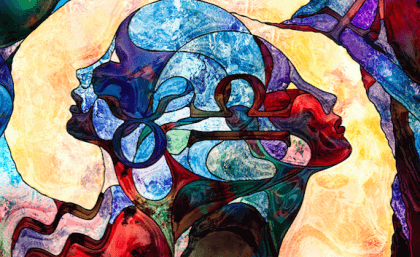Intuition and instinct are not the same. While the latter generates behavior aimed at allowing us to survive, the former has a deeper meaning in our species, giving us an inner voice that helps us make better decisions, so even if the two dimensions do not have a common origin, they do help us better respond to the challenges of daily life.
To better understand this difference, consider two wonderful literary characters: Robinson Crusoe is a brave York sailor who, after being isolated on an island for 28 years after a shipwreck, uses his most basic instincts to survive a complex and unfortunate situation.
- On the other hand.
- Sherlock Holmes is the best reference we have for a mind accustomed to using his police instincts.
- The almost unconscious.
- Agile and precise inferences with which he manages to solve the most difficult riddles.
“There are situations that people solve instinctively, but they can’t comment on their intelligence. “- Alejandro Dumas-
Thus, the most interesting thing about these two skills or behaviors is that both are applied equally in our day-to-day life without us realizing, however, only intuition is unique to the human being. Using both approaches, each in the best way and in our favor, can help us thrive safely, better manage our fears and tensions, enjoy our experience and our ability to lead more meaningful lives. Let’s look at more data below.
Intuition and instinct are not the same, we already know, although many make the mistake of using them interchangeably and frequently, so it is very common to use them in contexts where our sensations or emotions guide us in one way or another. ? My intuition indicates “I am following my instincts” are a clear example that this small conceptual error must be well defined and understood for our personal benefit.
From a biological point of view, an instinct is innate behavior, it is our internal needs and behaviors that allow us to survive in a specific place, in this way instincts such as conservation, protection, sociability, reproduction, cooperation or curiosity are very basic faculties that define not only the human being, but also a large part of all animals.
However, it is very curious how, from the twentieth century, with the development of modern psychology, the concept of instinct began to be perceived as uncomfortable. It was as if that bond unites us with an almost wild version of the human being, a dimension that should be repressed or camouflaged in some way. In this sense, figures like Abraham Maslow began to popularize terms such as “Do I desire?Or motivation to symbolize these internal needs of each of us.
The 21st century has arrived, however, this conception has changed a lot, binary intuition and instinct have been greatly appreciated again and, in view of the latter dimension, the reformulation made of instinct is as interesting as it is revealing. Dr. Hendrie Weiseinger, an influential clinical psychologist and author of the book “The Genius of Instinct,” explains that instincts are neither dark nor primitive. This is not something we should eliminate.
If we learn to use them to our advantage, we can better manage factors such as stress and fear. In addition, harnessing instincts such as compassion, care, or kindness would create much more rewarding and meaningful environments.
After all, far beyond what may seem at first glance, the instinct for compassion or kindness exists in all of us, as revealed by a study by Professor Dacher Keltner of the University of California.
Some people think that intuition is a set of sensations that gives us clues about something, okay?It must be said that this dimension does not correspond to magical processes or sensory perceptions; rather, they are cognitive perceptions. Carl Jung himself defined the intuitive person as someone who can anticipate certain events or situations using his own material.
In conclusion, we know that intuition and instinct are not the same and do not share the same origin, instinct has a biological basis, while intuition is the result of our experience and the development of consciousness, yet both have an undeniable common goal. : allow us to adjust more to our reality, survive more efficiently, anticipate risks and shape a more connected and fulfilling life.

